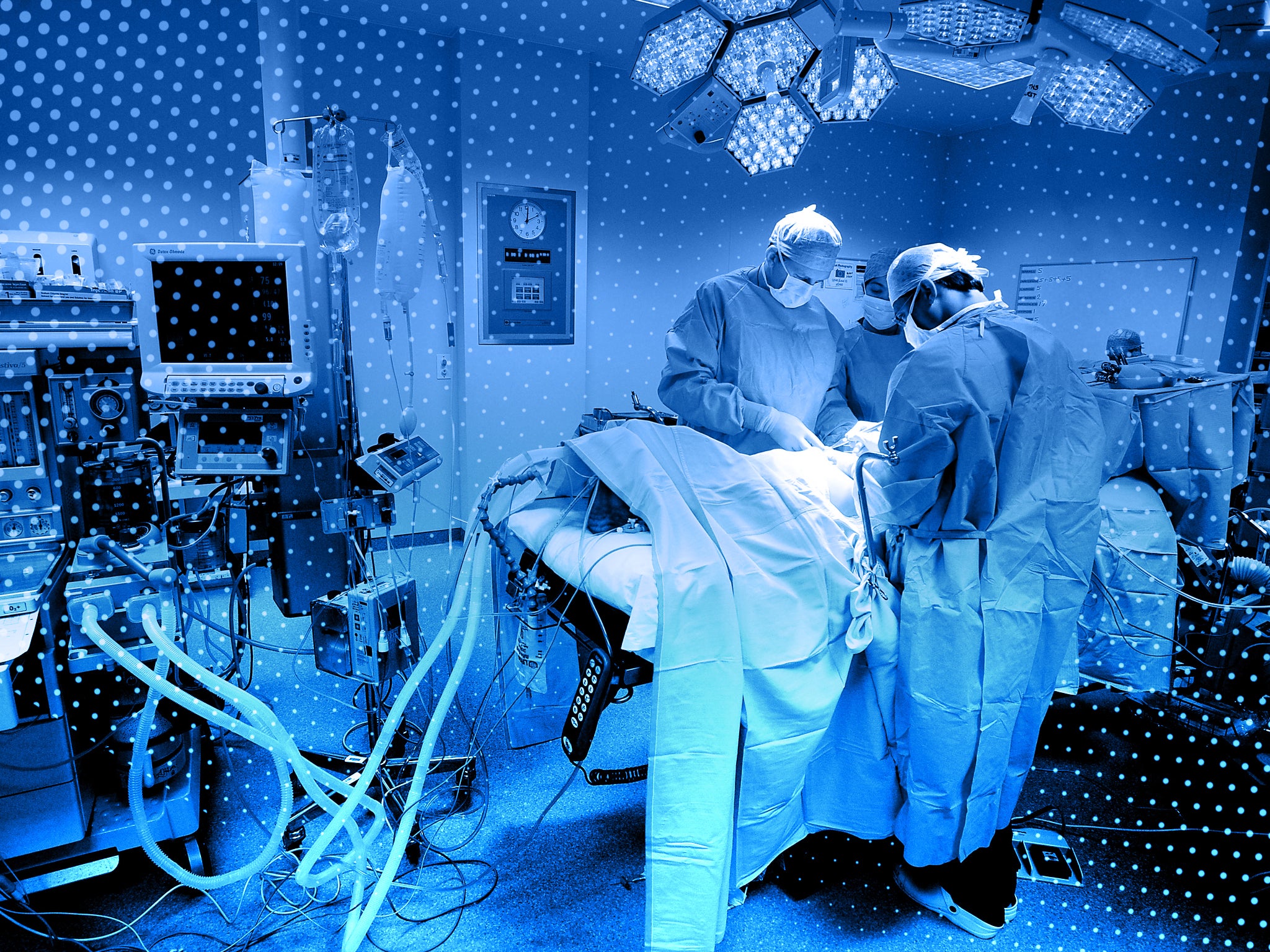Tech can save the NHS – but who will help grandpa keep up?
As a sci-fi nerd, it’s awesome that tech can take care of my diabetes – but as the nation ages, patients are in danger of missing out on a healthcare revolution, writes Jim Moore


Because I have Type One Diabetes, I hate hot weather. It sends my volatile blood sugar levels into crazy territory.
I can see this now on my Libre app on the screen of my iPhone. I waft my mobile over an electrode the size of a two-pound coin in my left arm and a reading is produced, which feeds into a wealth of data about what my body is doing. So, of course, I no longer have to stab my fingers twelve times a day to find out what’s going on with the amount of glucose in my blood. It has been a revelation.
Wednesday, for instance, was the worst looking graph since I finally secured this brilliant tech. But overall, my blood sugar levels are now not far off those of a normal person without the autoimmune disorder (that would be the Type One, which I’ve had since childhood). Except when the heat gets in the way.
As a sci-fi nerd, this is awesome. I’m plugged into the sugar Matrix. My eyes, heart, kidneys, liver, you name it, they’re saying thanks. This is why there’s a hashtag doing the rounds on Twitter: #DiabetesTechCantWait.
Tech could also revolutionise the NHS itself. It is already doing things. Ordering a repeat prescription – which I have to do every couple of weeks – is much simpler than it used to be. You jump into the app, click on what you need. A text from the pharmacy arrives when the meds are ready to pick up. Brilliant.
But it can be very clunky and Labour’s Wes Streeting thinks it can both do better and do more. Earlier this year, he talked of the “infuriating merry-go-round” involved in dealing with the system. After a brush with cancer, he was speaking from personal experience.
I had to battle to get an appointment to secure that Libre. They were officially being “rolled out” across the NHS. The trouble is that the wheels were gummed up by bureaucracy on the way to some of us.
They’re still in transit. The brilliant Partha Kar, a consultant endocrinologist and diabetes co-lead for NHS England, has previously tweeted his frustration at the NHS failing to fund these “with no plausible reason”.
So I know only too well what Wes was talking about. I’ve been living it. Could tech be a fix? Streeting has been banging the drum at the NHS Confederation Expo in Manchester, arguing that every patient using the NHS App should be able to see their medical records, book appointments, link to upcoming appointment reminders and receive notifications if they are eligible for clinical trials.
NHS tech, he said, “needs an upgrade”. He’s right about that. My experience speaks to it and there is much about his vision that I find highly appealing, sufficiently appealing that I could set my growing concerns about Keir Starmer’s Labour aside and vote for him (he’s my constituency MP). As an NHS super-user (my description) it could if done right be as revolutionary as the Libre for my Type 1.
But here’s where I have a worry. NHS patients lean older. Of course they do. And as we get older, we get sicker. That’s life.
I’m pretty tech savvy for someone in what you’d probably (I hope) class as middle age. So when Wes speaks, I say bring it on.
Some retired people in the “senior” class are known as “silver surfers”. They are sometimes as tech-savvy as their grandchildren and they find using the NHS current tech as easy as placing an order with Ocado (if they can afford Ocado). I imagine they would say “bring it on” too.
But that isn’t true of everyone. Tech is very awkward for some older people. The same is true for people with disabilities; those with sensory impairments or learning difficulties, for example. Their needs aren’t always given due consideration or even recognised (perhaps because they are shamefully poorly represented in positions of influence) when new tech is being developed.
A report by the NHS Confederation, in conjunction with Google Health found that most Britons “want to make better use of health technology” but “not at the expense of face-to-face contact with their doctor or other healthcare worker”.
That should be borne in mind. So should the fact that a human input is sometimes necessary and needs to be made easy to access for people whose tech falls down or who just find it hard to use.
The NHS doesn’t always put the patient first. Not in my experience. Tech could help with that. But it could also exacerbate existing problems if apps break down and there isn’t someone on the end of the phone willing to intercede. Which is often a problem even now.






Join our commenting forum
Join thought-provoking conversations, follow other Independent readers and see their replies
5Comments